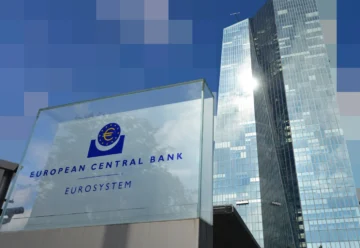U.S. Treasury Department Sanctions Against Tornado Cash Threaten Web 3.0 Privacy
Sanctions imposed by the Office of Foreign Assets Control (OFAC) of the U.S. Treasury Department against Tornado Cash smart contracts continue to put global pressure on the cryptocurrency industry. Smart contract developers argue that the Treasury Department’s actions could have a detrimental effect on each Web 3.0 protocol, particularly those providing privacy.
The cryptocurrency community continues criticizing the U.S. government’s actions against the Tornado Cash cryptocurrency mixer. The OFAC exceeds its authority, and this incident will have consequences not only for privacy protocols, but also for the entire Web 3.0 space. This is the opinion shared in an interview for Cointelegraph by Shumo Chu, Founder and Developer at Manta Network.
Chu argues that privacy protocols like Manta Network could soon be targeted by the OFAC, too, resulting in a “meaningless” use of the technology. According to Chu, the entire Web 3.0 space could be at risk because the principles of decentralization do not involve government oversight. And that is exactly the kind of control Chu believes the U.S. government is striving for.
Earlier this month, the OFAC recognized Tornado Cash as a cybercrime money laundering tool and included over 40 crypto addresses in the SDN list, thereby effectively sanctioning the code. Later, the arrest of Tornado Cash developer Alexey Pertsev in the Netherlands became known. He was accused of assisting in money laundering through Tornado Cash.
The community strongly reacted to the developer’s arrest, arguing that writing code is not a criminal offense. Ksenia Malik, Alexei Pertsev’s wife, claims that the Dutch government prevents her from even getting in touch with her husband, which violates his constitutional rights.
As a result, on August 20, a rally in support of the developer was organized in Amsterdam, gathering more than 50 people. It was organized by the DeFi aggregator 1inch, whose representatives stated that the community should “stand up for the right to build open-source software.” However, a Dutch court rejected an application by Pertsev’s lawyers to release him on bail and decided to keep the developer in custody for 90 days pending a public hearing.
Despite the criticism voiced by the community, some major market players comply with the OFAC regulations out of fear of repercussions. For example, the exchange FTX blocked the account of a user associated with the protocol zk.money, which the site administration identified as a mixer. FTX representatives argue that the activities of such services are considered “high-risk,” that is why interaction with them is prohibited on the exchange.
Other companies also keep blocking addresses associated with Tornado Cash:
- Circle, the issuer of the USDC stablecoin, blocked about $75,000 at addresses associated with the mixer in response to the OFAC sanctions.
- DEX Uniswap blocked more than 250 addresses, some of which are linked to Tornado Cash.
- The decentralized exchange dYdX blocked user accounts with funds coming from the mixer.
Nevertheless, Tether, the issuer of USDT, refused to freeze the addresses associated with the mixer. Company representatives said that they do not plan to follow the sanctions on their own initiative because “no U.S. law enforcement agency or regulator has made such a request.” Tether considers the address blocking a “highly disruptive” and “reckless” move, which the company has no legitimate reason to pursue.
The actions of the OFAC were also questioned by the U.S. House of Representatives member Tom Emmer, who sent a letter to the Treasury Secretary regarding the “unprecedented sanctions” against Tornado Cash. In the letter, Emmer argued that such actions “impact the right to privacy of every American citizen.” He also stressed that Tornado Cash is not controlled by any individual or entity, so it remains unclear to him who the OFAC sanctions were imposed on.
At the same time, according to the research by Elliptic, about $328 million of illegal money was transferred to crypto mixers’ accounts over the last five years. $137.6 million of it came from Tornado Cash alone.











